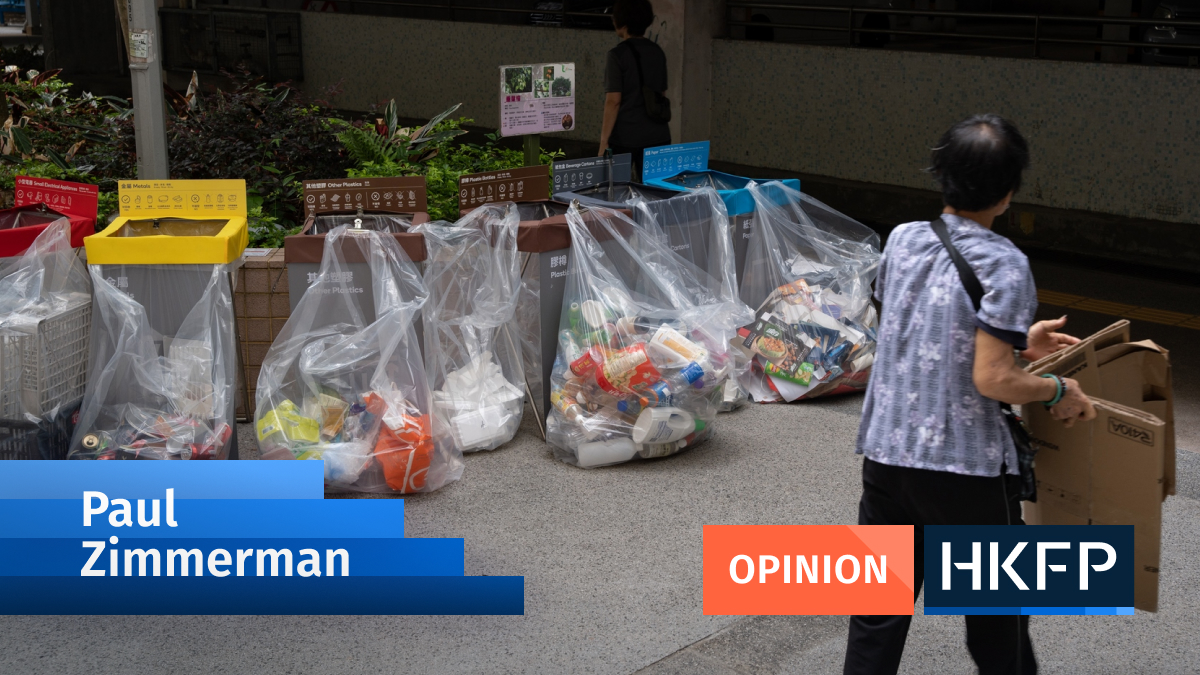Unlike most of the world, Taiwan had a good 2020. It contained Covid-19 for most of the year, is expected to see GDP growth of over two per cent, and enjoyed several diplomatic successes. However, the threat of China still looms large and the inauguration of a new American president has raised concerns over whether the US-Taiwan relationship can retain its momentum.
Having contained Covid-19 early on, Taiwanese society functioned almost as normal and the island enjoyed rising exports and incoming investment as well as positive global recognition. There were visits by high-ranking US officials, as well as the Czech Republic’s Senate President Miloš Vystrčil in August.

The visit by US Health and Human Resources Secretary Alex Azar on August 9 – the first by a cabinet-level official in six years – was a high point. This was followed by the visit of US Undersecretary of State Keith Krach in September.
The US agreed to sell Taiwan over US$5 billion in arms during 2020 including cruise missiles and torpedoes, drones and 66 new F-16 fighters. Washington also passed several pro-Taiwan bills during the year such as the Taiwan Assurance Act in December, which would regularise arms sales, and the TAIPEI Act in March. The latter aims to promote Taiwan’s participation in international organisations such as the World Health Organisation.
Notably, Taiwan was the only Asia-Pacific location in a YouGov survey in which respondents preferred Donald Trump over Joe Biden, due to what they saw as Trump’s forceful stance towards China such as his trade war. His loss to Biden in the November election raised some concerns in Taiwan, not to mention protests. Biden will almost certainly have a less confrontational and less unpredictable approach towards China.

However, Biden’s camp has stressed that strong measures against China such as tariffs will be maintained while Biden himself has said that support for Taiwan will continue. This is encouraging for Taiwan, which will hope for more of the same in the form of arms sales, official visits and other exchanges.
Biden will certainly not want to be seen as soft on China, a stance which would attract strong criticism from Republican opponents and critics. There is broad support across the US political spectrum for a tough approach to China due to unfair trade practices, human rights violations and other issues. Biden would also likely be more open than Trump to building alliances with friendly nations to confront China.
A firm US stance is vital for Taiwan. Last year, China stepped up provocations, sending almost daily flights of military aircraft into Taiwan’s air defense identification zone (ADIZ) in the last few months while conducting numerous large-scale military exercises. The number of PLA flights into Taiwan’s ADIZ, many which crossed the median line in the Taiwan Strait, was the highest since 1996, with 380 flights alone in the southwest ADIZ.
During Krach’s visit in September, the PLA sent almost 40 bombers and jets across the Taiwan Strait median line in the course of two days.

As a result, many observers worry about a potential attack or even invasion. Currently, the US has a policy of strategic ambiguity which tries to deter China from attacking Taiwan while not provoking it. However, some are urging the US to makes its intention to defend Taiwan clearer. In any case, some form of US assistance will be necessary if China launches military action.
Taiwan’s South China Sea outposts of the Pratas (Dongsha) and Taiping (Itu Aba) islets, as well as Matsu and Kinmen off the coast of Fujian, are considered particularly vulnerable.
The flights constitute “gray-zone warfare,” in which China tries to wear down Taiwan’s smaller military through provocative acts. Forcing Taiwan to launch jets to confront Chinese planes takes a physical toll on the island’s military aircraft and equipment as well as on personnel. The fatal crash of two Taiwan air force jets in October and November reflected this grim reality, following fatalities earlier in the year in helicopter crashes, a marine landing drill and a tank accident.
This situation is likely to persist throughout 2021 and Taiwan’s challenge is to ensure it can fend off China and defend itself. While US arms sales are important, Taiwan must also continue improving its military readiness, which has been criticised as less than adequate, while also reforming its reserve force.

There is also room for Taiwan to bolster relations with Asian countries. While it already has relatively warm ties with Japan, it needs stronger relations with India and Southeast Asia, which its New Southbound Policy initiative targets.
There is ample opportunity in those countries for Taiwan to boost cooperation and trade, as well as set up manufacturing bases as more Taiwanese firms look to move from China and diversify their supply chains.
A dispute with Indonesia over brokerage fees for migrant workers which began in October threatens to damage relations. More than 265,000 Indonesian migrant workers in Taiwan, the largest group of such workers, would have to pay brokers for things like health checks, paperwork, and transportation. As a result, they often incur serious debts even before starting work and need months or longer to pay them off.
Indonesia decided that from 2021, 11 of the fees for those working as domestic helpers – the majority of Indonesian migrant workers – would be paid by Taiwanese employers directly. However, Taiwan firmly refused Indonesia’s request. The two sides met in December and are scheduled to meet again in January over the issue.
Taiwan would be well advised to resolve this issue amicably, especially given its notorious record with migrant workers including domestic helpers and those employed in its vast fishing fleet.
Taiwanese firms must focus harder on thriving in unfamiliar environments as they set up operations and invest in countries further afield. During a strike in December at Wistron’s iPhone plant in southern India, local workers protesting over unpaid wages caused damage of several million US dollars. The Taiwanese firm was later put “on probation” by Apple, which suspended new orders until Wistron could implement necessary “corrective actions.”
Despite its 2020 achievements, Taiwan cannot rest on its laurels. It will have its hands full in 2021 with fending off China and maintaining its diplomatic and economic outreach.
Support HKFP | Policies & Ethics | Error/typo? | Contact Us | Newsletter | Transparency & Annual Report | Apps
Help safeguard press freedom & keep HKFP free for all readers by supporting our team
| HKFP is an impartial platform & does not necessarily share the views of opinion writers or advertisers. HKFP presents a diversity of views & regularly invites figures across the political spectrum to write for us. Press freedom is guaranteed under the Basic Law, security law, Bill of Rights and Chinese constitution. Opinion pieces aim to point out errors or defects in the government, law or policies, or aim to suggest ideas or alterations via legal means without an intention of hatred, discontent or hostility against the authorities or other communities. |

More HKFP OPINION:
HKFP has an impartial stance, transparent funding, and balanced coverage guided by an Ethics Code and Corrections Policy.
Support press freedom & help us surpass 1,000 monthly Patrons: 100% independent, governed by an ethics code & not-for-profit.










